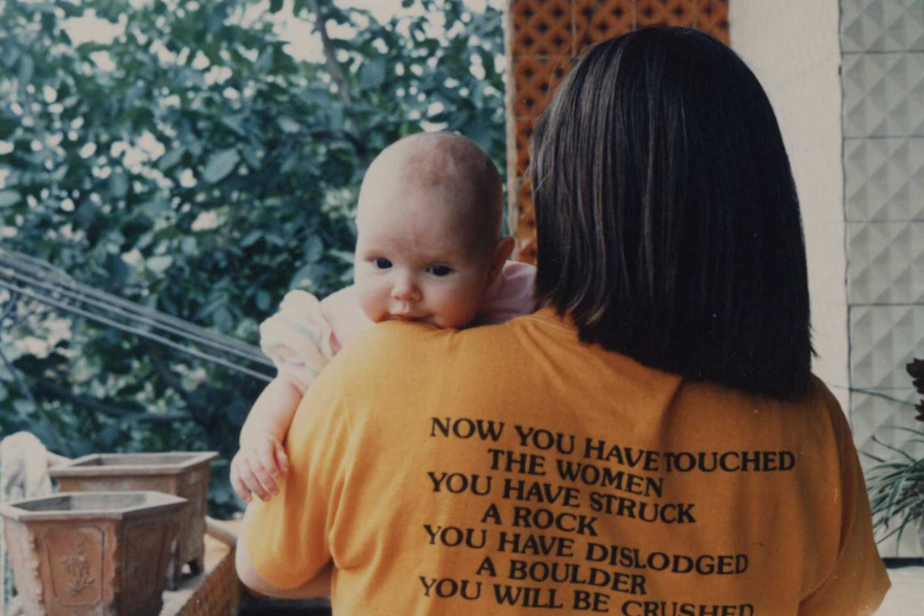My history teacher's unusual personal history

Stephanie Hogan was born in America and raised Jewish. But after living abroad and watching senseless violent events unfold, she began to question and change her identity and beliefs.
Now 'Ms. Hogan' teaches history at Mount Rainier High School, where she met RadioActive’s Daniel Colindres-Flores. Daniel talked with Ms. Hogan about her lifelong process of self-discovery.
Please note this story briefly references state-sanctioned racist violence.
[RadioActive Youth Media is KUOW’s radio journalism and audio storytelling program for young people. This story was entirely youth-produced, from the writing to the audio editing.]
A
t my school, few people actually enjoy history class. But I love it. I love it because of how sympathetic it is, centering on real human experience.
Part of my love for history is thanks to my teacher, Ms. Stephanie Hogan, for teaching it in an amazing way. I wanted to learn more about her experiences as a person, so I talked to her about how she ended up where she is now.
Ms. Hogan said a large part of her identity has to do with being raised Jewish, even when her extended family wasn’t.
"We were kind of rejected," she said, "being 'the other' in our family."
When she got older, Ms. Hogan decided to move abroad to discover new possibilities.
"And even though I was an entitled American living abroad, I still was treated as an 'other' sometimes," she said. "I would say I've been an 'other' most of my life."

One day in 1985, Ms. Hogan was watching the news when she saw converge of the Langa massacre, where South African police opened fire on a crowd heading to attend a funeral, killing dozens of people.
"And then the next story was about Israeli soldiers shooting at Palestinians for throwing rocks, and it just clicked for me," she said.
Ms. Hogan said that growing up Jewish, she was taught a lot about the Holocaust. She even has family members who were killed in the Holocaust. And she couldn't understand how Jewish Israelis, given their history of persecution, could be so violent toward Palestinians.
So, Ms. Hogan gave up her identity of being Jewish and decided to explore different faiths.
Ms. Hogan moved to China in the late 80s to teach English. This is when she discovered a desire to explore Islam. In China, she visited areas with Islamic significance and connected with Muslims in her area. Ms. Hogan soon converted to Islam.

While moving to China allowed Ms. Hogan to discover her faith, she realized life in China at the time was not what she was looking for. After the Tiananmen Square massacre in 1989, Ms. Hogan knew she had to leave China.
"I went to China looking for a different kind of system. And I quickly realized that [China] was far from perfect," Ms. Hogan said. "And then Tiananmen Square happened, and so it just made it seem more like the things that we were trying to get away from in the United States."
Ms. Hogan left China and moved to Taiwan. Then, in 1993, she moved back to the United States where 29 years later, we met.
Ms. Hogan’s travels and the wisdom she gained on her journey to learn human acceptance stuck out to me. There was a connection that I felt the more I got to know her. So this is a thank you to Ms. Hogan, for inspiring me to be more open, and passing on that wisdom to me.
This story was produced in a RadioActive Youth Media introductory workshop for high school-age youth. Production assistance by Antonio Nevarez. Edited by Mike Davis. Prepared for the web by Kelsey Kupferer and Lila Lakehart.
Find RadioActive on Instagram, TikTok, YouTube and Facebook, and on the "RadioActive" podcast.
Support for KUOW's RadioActive comes from the Bill & Melinda Gates Foundation Discovery Center and BECU.
